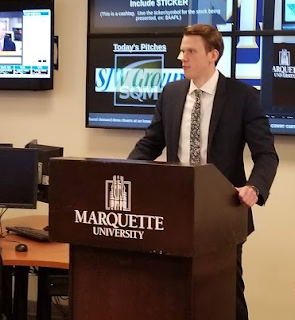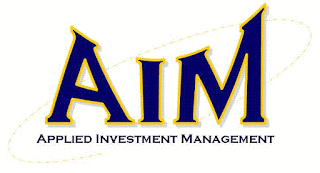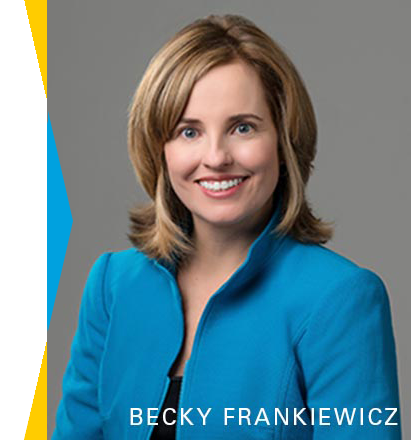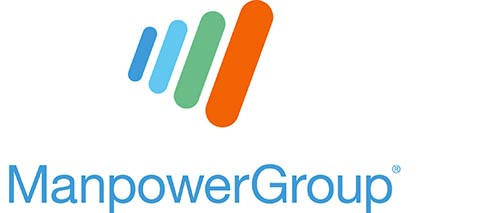Congratulations to Joe Daniels - Marquette's new acting Keyes Dean of Business
Administration
 |
| Joseph Daniels, Acting Dean of the College of Business Administration |
Dr. Joe
Daniels, chair and professor of economics in the College of Business
Administration, has been named acting Keyes Dean of Business Administration,
Acting Provost Kimo Ah Yun announced today. Daniels will assume the role on May
20, succeeding Keyes Dean Brian Till who earlier this month announced
he would be stepping down at the end of the semester.
“Over his nearly 30 years at Marquette, Dr. Daniels has
demonstrated not only strong, progressive leadership in the College of Business
Administration, but also a dedication to the university’s mission, vision and
values,” Acting Provost Ah Yun said. “He is the ideal individual to help the
college build on its momentum and advance its vision of becoming a ‘destination
business school.’”
“I have called the College of Business Administration home
for nearly my entire career, and I’m honored to step in as acting Keyes Dean at
this key moment in our future,” Daniels said. “The college is fortunate to have
such a dedicated and visionary faculty and staff — together we will continue to
dream big and achieve great things.”
In addition to serving as chair of the Economics Department
— which serves students in the College of Business Administration and the
Klingler College of Arts and Sciences — Daniels is co-director of the Center
for Applied Economics. He currently serves on the University Financial Planning
and Review Committee, the Dean’s Executive Council for the College of Business
Administration, and the Dean’s Advisory Council for the Klingler College of
Arts and Sciences.
 Daniels, who has a bachelor’s degree in business economics
and political science from Ball State University in Muncie, Indiana, received
his master’s degree and Ph.D. from Indiana University – Bloomington with
specializations in international trade and finance. He is widely published in
economics, finance and political science, and his research has appeared in
outlets such as the Journal of Money, Credit, and Banking; Journal of
International Money and Finance; Journal of Monetary Economics /
Carnegie Rochester Conference Series on Public Policy; and International
Tax and Public Finance, and he has been reviewed in the Wall Street
Journal and Foreign Policy. He teaches international currency
markets and international trade and is the recipient of university-wide
teaching awards from Indiana University and Marquette University.
Daniels, who has a bachelor’s degree in business economics
and political science from Ball State University in Muncie, Indiana, received
his master’s degree and Ph.D. from Indiana University – Bloomington with
specializations in international trade and finance. He is widely published in
economics, finance and political science, and his research has appeared in
outlets such as the Journal of Money, Credit, and Banking; Journal of
International Money and Finance; Journal of Monetary Economics /
Carnegie Rochester Conference Series on Public Policy; and International
Tax and Public Finance, and he has been reviewed in the Wall Street
Journal and Foreign Policy. He teaches international currency
markets and international trade and is the recipient of university-wide
teaching awards from Indiana University and Marquette University.
Daniels served as a Visiting Fulbright Chair of Governance
and Public Policy at McMaster University, the Farr Distinguished Visiting
Professor of International Finance in the Economics Department at Wake Forest
University, and as a Visiting Fulbright Research Scholar in the International
Relations Program at the University of Toronto. He has functioned as an
officially credentialed media expert at G7/G8 economic summits and has been
interviewed by a wide range of media outlets including the Washington Post,
New York Times, and Financial Times.
The search for the next permanent Keyes Dean of Business
Administration will follow the provost search so that the permanent provost can
weigh in on that process.
Provost search update
According to the President’s Office, the search for Marquette’s next permanent provost will begin after spring break — a search committee and search firm will be identified in the preceding weeks. Listening sessions and the development of a position profile will take place over the spring semester, with a candidate pool created this summer.
According to the President’s Office, the search for Marquette’s next permanent provost will begin after spring break — a search committee and search firm will be identified in the preceding weeks. Listening sessions and the development of a position profile will take place over the spring semester, with a candidate pool created this summer.

























